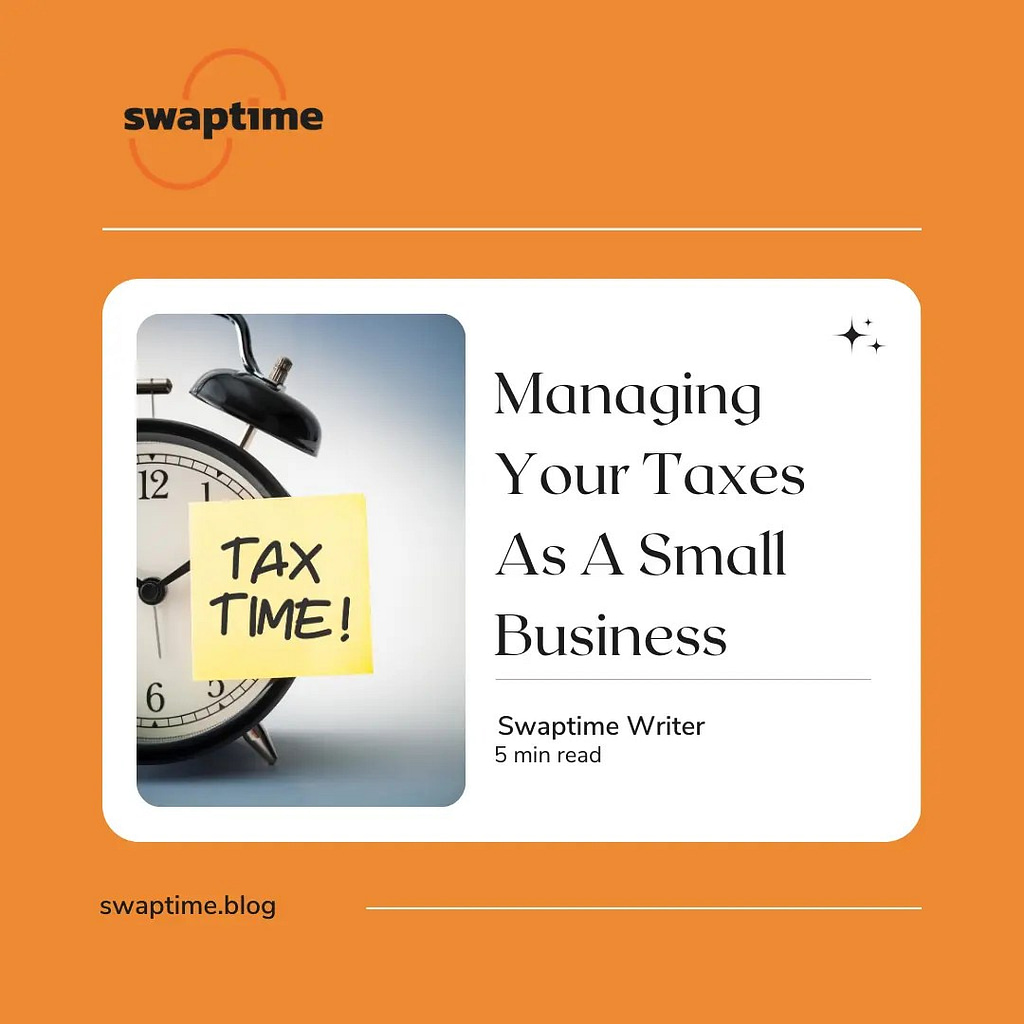Running a small business can be exciting but at the same time, it also comes with its fair share of challenges, particularly when it comes to managing taxes. As a small business owner, tax obligations can seem difficult. However, with proper planning and understanding of the tax system, you can find a way around managing your taxes as a small business. In this article, we talk about taxes and share tips that can help you navigate your tax responsibilities effectively.
What are taxes?
Taxes are compulsory financial contributions imposed by governments on individuals, businesses, and other entities to fund public expenditures and government operations. These contributions are used to finance various essential services and infrastructure, such as education, healthcare, transportation, defense, law enforcement, social welfare programs, and public utilities.
The collection of taxes is a primary source of revenue for governments at all levels, including local, regional, and national authorities. But beyond generating revenue for the government, taxes serve other purposes.
Why do you pay taxes?
- Redistribution of wealth: Taxes can be used to redistribute wealth from wealthier people or businesses to those with lower incomes through progressive tax systems or social welfare programs.
- Economic stabilization: Governments can use tax policies to influence economic behaviour, stimulate economic growth, control inflation, or address economic imbalances through measures such as fiscal stimulus or taxation of certain goods and services.
- Social and environmental goals: Tax incentives and penalties can be used to promote specific social or environmental goals, such as encouraging renewable energy adoption, reducing carbon emissions, or supporting charitable donations.
11 effective tax management strategies
- Keep accurate records
- Claim allowable expenses
- Plan for tax deductions and reliefs
- Look out for capital allowances
- Consider pension contributions
- Pay employee benefits and rewards
- Monitor changes in tax laws
- Keep personal and business finances separate
- Seek professional advice
- File your tax returns on time
- Pay taxes promptly
1. Keep accurate records
Maintaining meticulous records of your business income and expenses is important for fulfilling your tax obligations accurately. Consider investing in accounting tools online or hiring a professional accountant to ensure your records are organized and up-to-date. When your records are kept and updated properly, it not only simplifies tax preparation but also helps you monitor your business’s financial health.
2. Claim allowable expenses
Take advantage of allowable business expenses to reduce your taxable profits and ultimately lower your tax bill. Some common allowable expenses for small businesses include office rent, utilities, office supplies, travel expenses, and professional fees. Make sure to keep receipts and invoices for all business-related purchases to support your expense claims.
3. Plan for tax deductions and reliefs
Look out for available tax deductions and reliefs that can help reduce your tax liability. For example, the Annual Investment Allowance (AIA) allows businesses to deduct the full value of qualifying plant and machinery investments from their taxable profits, up to a certain threshold. Also, you can research tax relief schemes like Research and Development (R&D) tax credits that give incentives to innovative projects in science and technology.
4. Look out for capital allowances
Make the most of capital allowances to offset the cost of certain assets against your taxable profits. Capital allowances allow you to remove the cost of assets that qualify, such as equipment, machinery, and vehicles, from your taxable income over time. Do well to review the available allowances that you can access and claim them appropriately to maximize your tax savings.
5. Consider pension contributions
Another way to manage your taxes effectively as a small business is to consider making contributions to a pension scheme to save for retirement while reducing your taxable profits. Employer pension contributions are generally tax-deductible. This means that they can lower your corporation tax bill. Personal pension contributions by self-employed individuals may also qualify for tax relief which provides additional tax benefits.
6. Pay employee benefits and rewards
You should consider offering tax-efficient employee benefits and rewards to attract and retain talent while managing your tax liabilities. Certain employee benefits like childcare vouchers, workplace pensions, and cycle-to-work schemes, may qualify for tax relief or exemptions, reducing your National Insurance contributions and enhancing employee satisfaction.
7. Monitor changes in tax laws
Stay updated about changes in tax laws and regulations that may affect your business. HMRC regularly updates tax rules and allowances, so you need to stay up-to-date to ensure you comply with the new changes and also to take advantage of any new opportunities for tax planning and savings. You might also want to subscribe to HMRC newsletters, consult with tax advisors, or attend tax seminars to stay informed.
8. Keep personal and business finances separate
Ensure there’s a clear separation between your personal and business finances. This helps to simplify how you manage your taxes and ensure there’s accurate reporting. Use separate bank accounts and accounting systems for your business transactions, and avoid mixing personal expenses with business expenses. Keeping clean financial records makes it easier to track deductible expenses, prepare tax returns, and demonstrate compliance with HMRC requirements.
9. Seek professional advice
Navigating the complex nature of tax regulations can be difficult sometimes, especially for small business owners with limited resources. If you can afford to, seek professional advice from a qualified accountant or tax advisor who specializes in small business taxation. A knowledgeable person can provide insights that are peculiar to you and your business and help you optimize your tax position while ensuring you comply with HMRC requirements.
10. File your tax returns on time
It’s important to meet tax filing deadlines to avoid any penalties and interest charges. Stay informed about important tax deadlines and make sure to submit your tax returns well before the due dates. Failure to file your returns on time can result in financial penalties, so prioritize timely compliance with HMRC requirements.
11. Pay taxes promptly
In addition to filing your tax returns on time, ensure timely payment of any tax liabilities owed to HMRC. Failure to pay taxes by the due dates can lead to interest charges and enforcement actions by HMRC, including fines and potential legal proceedings. So, set aside funds regularly to cover your tax obligations. You can also use HMRC’s online payment services to make it easier for you.
Conclusion
Managing taxes as a small business owner doesn’t have to be difficult. Focus on learning what’s required from your business and plan strategically for it. Paying taxes is part of your civil responsibilities and it can be beneficial to your business growth in the long run. Remember, taking proactive steps to properly manage your tax minimizes your tax liability but also contributes to the success of your business.
ALSO READ:
Financial Literacy 101: 8 Money Management Tips for Young Professionals
Swaptime in 3 Easy Steps: Discover the Power of Collaboration
9 Tips and Strategies for Pricing your Products and Services



